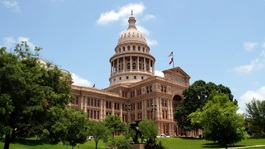
Publication
Senate Bill 29 on track to further Texas’ push as business hub
The Texas Business Court was established as a specialty court to handle complex business disputes on June 9, 2023, through the passage of H.B. 19.


Author:
United States | Publication | November 20, 2020
The California Occupational Safety and Health Standards Board has approved emergency, temporary COVID-19 regulations under California's Occupational Safety & Health Act (Cal/OSHA). California employers must now establish specific measures to curb the spread of COVID-19 in nearly every workplace in California.
The emergency regulations, which the Standards Board approved on Thursday night by a unanimous vote, must first be submitted to the Office of Administrative Law (OAL) for final approval. Upon submission, the OAL will have only 10 calendar days to approve or deny the proposed emergency regulations. If approved, the OAL will file the emergency regulation with the Secretary of State, and the emergency regulation will remain in effect up to 180 days. Under this timetable, the earliest date the new regulations could take effect is November 29, 2020.
The emergency regulations contain detailed mandates that most employers subject to California's Occupational Safety & Health statute must abide by in order to control, prevent, and mitigate the spread of COVID-19 in the workplace. The regulations do not apply to employees that work from home or to employers covered under Cal/OSHA's Aerosol Transmissible Diseases standard, including hospitals, skilled nursing facilities, clinics, and others.
One of the principal requirements of the new regulations is to establish, implement, and maintain an effective, written COVID-19 Prevention Program, which can be incorporated into the employer's Injury and Illness Prevention Program or maintained in a separate document. The COVID-19 Prevention Program must cover 11 different subjects, some in considerable detail. In summary, the Program must include:
The emergency regulations also contain stricter requirements for multiple COVID-19 infections and outbreaks in the workplace. Employers with knowledge of three or more COVID-19 cases among employees must notify the local public health officials of the COVID-19 outbreak within 48 hours. Moreover, employers must provide free COVID-19 testing to all employees who remain at the workplace after an outbreak.
Finally, the regulation contains additional requirements for "major outbreaks" (defined as 20 or more COVID-19 cases in a 30-day period); for employer-provided housing; and for employer-provided transportation to and from work.

Publication
The Texas Business Court was established as a specialty court to handle complex business disputes on June 9, 2023, through the passage of H.B. 19.

Publication
The Texas Business Court has repeatedly held that it lacks subject-matter jurisdiction to hear cases first-filed before September 1, 2024—regardless of the procedural posture by which the case arrived at the Business Court.
Subscribe and stay up to date with the latest legal news, information and events . . .
© Norton Rose Fulbright US LLP 2025